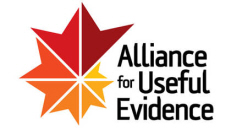The Economic Growth Advisor (EGA) programme was introduced by the Local Government Association in 2014 to promote, facilitate and enhance the role of local authorities in delivering economic growth. Derrick Johnstone was recruited to the panel of EGAs, whose role has been to offer bespoke advice and support to individual local authorities.
Derrick advised Three Rivers District Council in Hertfordshire:
- providing a fresh look at the local evidence base around economic growth, contributing to an updated Economic Profile
- preparing a ‘critical friend’ report to the Management Board recommending steps to sharpen the Council’s approach to economic development
- identifying good practice advice on introducing a Business Charter
- advising on the content and structure of a revised Economic Development Strategy.
The ‘critical friend’ role was particularly appreciated, highlighting how, in low cost ways, the Council can add more value in pursuit of economic growth.



 Derrick Johnstone was one of the panel members, along with Sam Markey from the Cabinet Office, Ruth Puttick from Nesta (author of ‘A NICE for Social Policy’), Jonathan Eastwood from Big Lottery Fund (co-funders of the new centre on Ageing Well), Julie Temperley from the Innovation Unit, and Phil Sooben from the ESRC (co-funders with BIS and CLG of the
Derrick Johnstone was one of the panel members, along with Sam Markey from the Cabinet Office, Ruth Puttick from Nesta (author of ‘A NICE for Social Policy’), Jonathan Eastwood from Big Lottery Fund (co-funders of the new centre on Ageing Well), Julie Temperley from the Innovation Unit, and Phil Sooben from the ESRC (co-funders with BIS and CLG of the